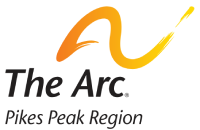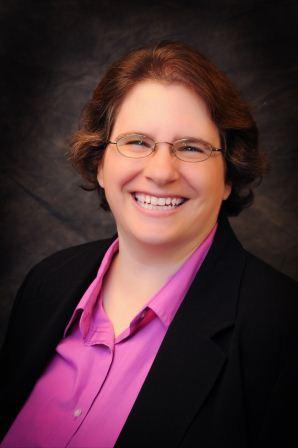Advocacy for individuals with disabilities is a huge component of The Arc Pikes Peak Region’s (The Arc PPR) work in the Colorado Springs community. And, The Arc PPR’s educational advocates are passionate about providing a voice for families who have children with disabilities in the school system. Today we invite you to take a peek into a day on the job with Advocacy Specialist Connie McKenzie. A former elementary school teacher and foster parent, Connie primarily works with families of school-aged children with disabilities. She is also the advisor for Include USA (Unique Self Advocates), a self-advocacy group for high school students and adults.
The Arc PPR: What does a “typical” day look like for you?
Connie McKenzie (CM): Although every day is different, a large part of my work involves meeting with parents, their children and school districts to discuss Individualized Education Programs (IEP). IEPs ensure that a child who has a disability under the law, and is attending an elementary or secondary school, receives necessary, specialized instruction and related services. I communicate with the school districts to figure out ways to help everybody involved come to consensus about what’s best for the child, but not to the level of compromise. I encourage parents to bring somebody that they trust as an advocate to their child’s IEP meeting, whether that is a professional advocate or a friend or family member. IEP meetings are often emotional for the parent, because they are deficit-based. It’s OK to be emotional, especially about your child. A good advocate will hear the things parents may miss when they’re emotional, while being a critical voice for the child’s best interest.
The Arc PPR: What are the ages of the children you work with?
CM: We provide advocacy for early intervention from birth through age three, elementary school, middle school, high school and transition services to age 21. Early intervention is all about trying to get the right therapies in place at a young age, and it is shown to be highly effective. I spend a lot of time working with elementary school students.
Transition services happen in high school and are aimed at preparing a child to be as independent as possible. When we work on IEPs for high school students, we ask, “How will this benefit the child in the future?” We try to ask the question, “Why not?” in response to common limitations placed on individuals with intellectual and developmental disabilities. If you remove limits, you help awaken individuals to their potential.
For example, Serenity, a little girl I provide advocacy for, was told that she would never walk or talk due to her disability. She has proved everybody wrong, and her doctors are constantly amazed.
Zach, another student I advocate for, had brain scans that showed he wouldn’t be able to walk or talk. He is now taking college classes and sets up job interviews on his own.
It’s really important to avoid putting limitations on people, and instead presume competence.
The Arc PPR: What are some ways that you would encourage the general public to learn about individuals with I/DD?
CM: One way to learn about life in the I/DD community is by watching documentaries or movies about the stories of this population. A great documentary is the film Wretches and Jabberers, which is the story of two individuals who communicate via alternative communication devices. Although each individual spent years in institutions, one is an artist and the other is a legislative advocate. The film really shows you that it’s important to look for skills people have and use them. The Arc PPR also has a library of books, which provides great resources on a wide variety of intellectual and developmental disability-related topics.
Volunteering at events with The Arc PPR is also an excellent way to learn about the I/DD community and their needs. We host a fun mix of social events, and volunteers are always appreciated! Additionally, it’s also important to listen to parents – they often know a lot more about what’s going on with their child.
The Arc PPR: What are some challenges of your job?
CM: Ensuring inclusion in schools for children with I/DD is a huge challenge of being an educational advocate. This means that children with I/DD are included with their peers in an educational setting as much as possible. Another challenge is a lack of service providers in certain areas. Also, lack of parental education regarding IEPs is a challenge. Because there’s a lot of legal language involved, I work to help clarify that language between the school district and the parents. Parents should be a huge part of the IEP process. It’s really my job to get everybody to see that we’re all “in it” for the best interest of the child.
Finding the right educational advocate for your student with I/DD can be a challenge. The Arc PPR provides educational advocacy for early childhood through young adult transition. To learn more about advocacy or volunteering, give us a call at (719) 471-4800.
Subscribe To Our Newsletter and SMS Reminders
The best way to ensure that you receive our newsletter, our event invitations, SMS reminders and other important information is to become a member of The Arc of the Pikes Peak Region.
The best way to ensure that you receive our newsletter, our event invitations, and other important information is to become a member of The Arc of the Pikes Peak Region.


